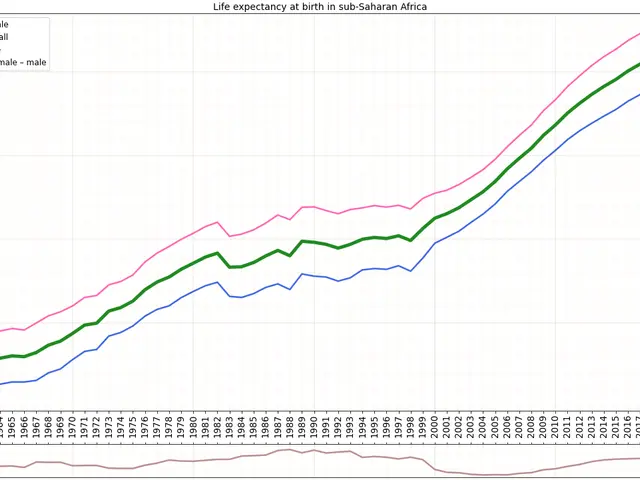Mother-Child Bonding & Mental Health: The Role of Oxytocin in Postpartum Period
Motherhood is more than just diapers and lullabies – it's a rollercoaster of emotions fueled by a powerful little hormone: oxytocin, also known as the "love hormone."
This remarkable chemical shows up during major mom moments like giving birth, breastfeeding, and cuddling with your baby. It's what gives mothers that warm, fuzzy feeling they can't get enough of.
But oxytocin does more than just make things feel good – it also helps moms stay calm, combat stress, and takes care of their mental health, acting like an emotional sidekick.
Understanding oxytocin and its impact can help us support moms better – not just with snuggles and lullabies, but with their mental and emotional well-being too. It's science with a touch of love... and a few baby burps.
Oxytocin and Childbirth
Oxytocin gets the party started long before the baby shower. During labor, it triggers strong contractions and prepares the uterus for the big event. It also sends a signal for your brain to release endorphins, acting as nature's built-in epidural.
After the baby is born, oxytocin helps with placenta delivery and sets the stage for the powerful bond between mother and child. Research shows that higher levels of oxytocin during labor lead to more affectionate behavior towards the baby later on. In other words, oxytocin is like the VIP pass to bonding time.
Breastfeeding and Oxytocin: A Cycle of Love
Breastfeeding is about more than just feeding your baby – it's like pressing play on an emotional playlist powered by oxytocin. Every time your baby latches on, oxytocin gets released, triggering the let-down reflex and boosting milk flow.
In addition to helping with breastmilk production, oxytocin strengthens the emotional bond between mother and child, helps shrink the uterus back down, and reduces bleeding. Studies suggest that breastfeeding can increase oxytocin levels, leaving mothers feeling extra calm and bonded with their babies – making new-mom life a little cozier and more zen.
The Power of Emotional Connection
Bonding with a baby doesn't just make for cute Instagram content – it's essential for a baby's brain and emotional development. Oxytocin is behind the scenes, making it all happen by supercharging emotional connections.
With oxytocin, moms experience epic eye contact and "baby conversations" without saying a word, feel intensely protective and caring, and develop an intuitive understanding of their baby's needs. Babies pick up on this emotional connection, developing trust and emotional control as a result.
The Mental Health Benefits of Oxytocin in Mothers
Motherhood can be a lot – just ask anyone who's ever had aphanteria or survived the postpartum period. Thankfully, oxytocin is there to help. It's a key player in fighting stress, boosting mood, and lowering the risk of postpartum depression (PPD).
But oxytocin isn't a miracle cure – some mothers may still face PPD due to factors like hormonal imbalances, trauma, or social stress. So while oxytocin is an essential piece of the puzzle, it's not the only one.
Challenges: When Oxytocin Doesn't Work as Expected
Oxytocin is generally the MVP of motherhood – it helps with bonding and stress management. But sometimes, even this amazing hormone stumbles. Difficulties during childbirth, lack of support, old wounds, hormonal imbalances, and bottle-feeding can affect oxytocin levels and make bonding feel harder.
7 Ways to Encourage Oxytocin Release
Even when oxytocin isn't flowing as it should, there are ways to give it a nudge. Here are 7 strategies to maximize feel-good hormones:
- Skin-to-skin cuddles: VIP access for oxytocin.
- Breastfeeding on demand: Every latch gives oxytocin a chance to do its thing.
- Gentle touch and massage: A spa day for mom and baby.
- Soothing music: Setting the mood for emotional well-being.
- Hang with loved ones: Bonus oxytocin from your favorite people.
- Mindfulness or yoga: Inner peace, meet happy hormones.
- Eye contact and compliments: Refresh your emotional health.
Oxytocin and Long-Term Effects on Child Development
Oxytocin isn't just a mood booster for moms – it also has long-term benefits for babies. The emotional bond oxytocin helps create in early life can shape a child's development in significant ways, leading to stronger attachments, greater empathy, and improved emotional regulation.
Understanding the impact of oxytocin on child development can help us build stronger, healthier families. So whether you're hugging your baby, nursing on the couch, or simply enjoying a moment of connection – you're impacting your child's future in a profound way. Oxytocin for the win!
Oxytocin, known as the "love hormone," plays a crucial role in mental health during motherhood, helping combat stress and promoting calmness. This hormone is also linked to the bond between mother and child, with higher levels during labor leading to more affectionate behavior later on.
Breastfeeding is another avenue through which oxytocin contributes to emotional bonding, as the physical act triggers its release and strengthens the mother-child connection. However, motherhood can be challenging, and oxytocin isn't always the panacea, with factors like hormonal imbalances, trauma, or social stress potentially contributing to postpartum depression.
On the positive side, there are strategies to encourage oxytocin release, such as skin-to-skin cuddles, breastfeeding on demand, gentle touch and massage, and mindfulness practices. These actions can have long-term benefits for the child's development, shaping them to be more empathetic, emotionally regulated, and securely attached.
Moreover, oxytocin influences various aspects of women's health beyond motherhood. For instance, it plays a role in women's health-and-wellness, mental-health, education-and-self-development, and personal-growth. Understanding the impact of oxytocin on mental well-being can help support mothers better, fostering their overall emotional and mental health.
In addition, mothers' mental health is essential for womens-health and the well-being of their children. This reality emphasizes the importance of prioritizing mental health and self-care, particularly during periods of high stress, such as parenting. The power of emotional connection fostered by oxytocin demonstrates that emotional well-being and physical health are intertwined, requiring a holistic approach to wellness.
It's important to acknowledge that mental health and emotional well-being are crucial components of overall health, and understanding the role of hormones such as oxytocin can help promote a healthier, happier, and more balanced lifestyle for mothers. Embrace the science behind love and feel-good hormones, as they have far-reaching impacts that transcend the immediate moments of motherhood.








